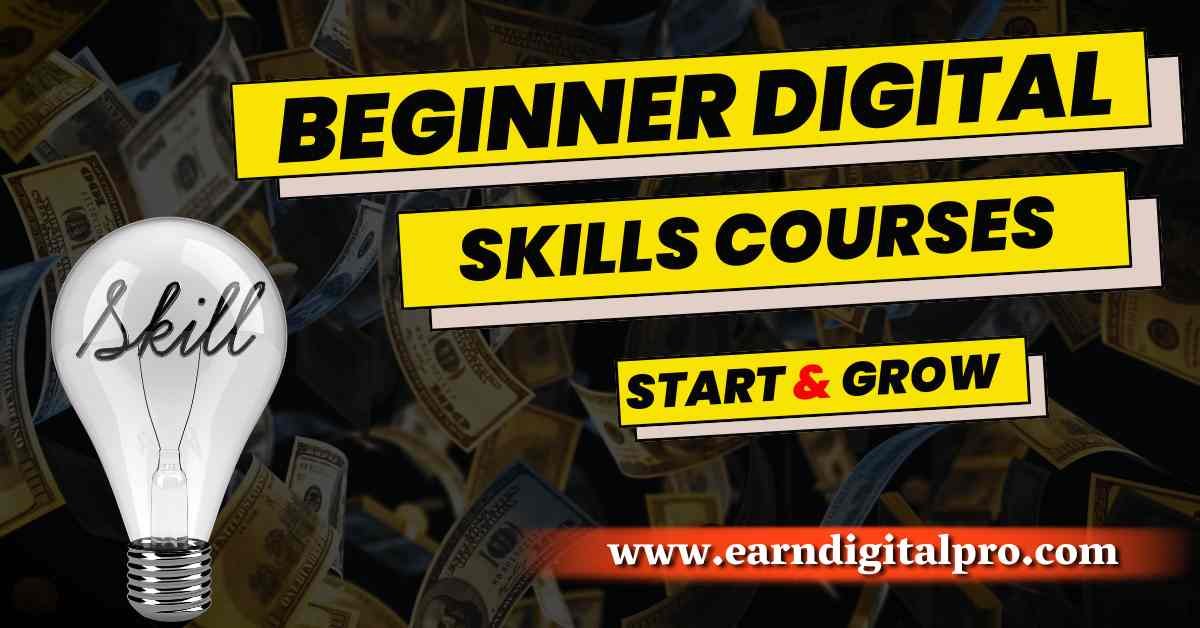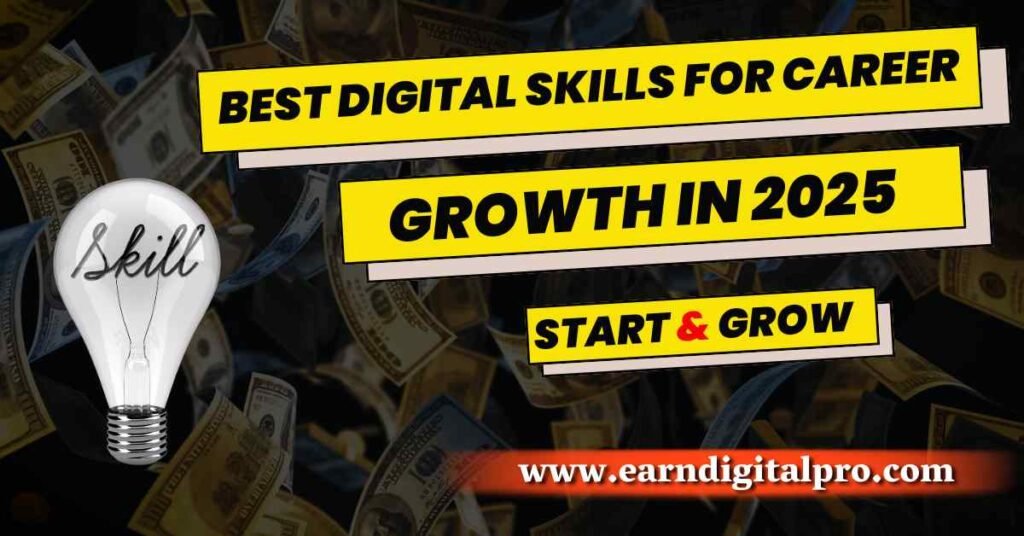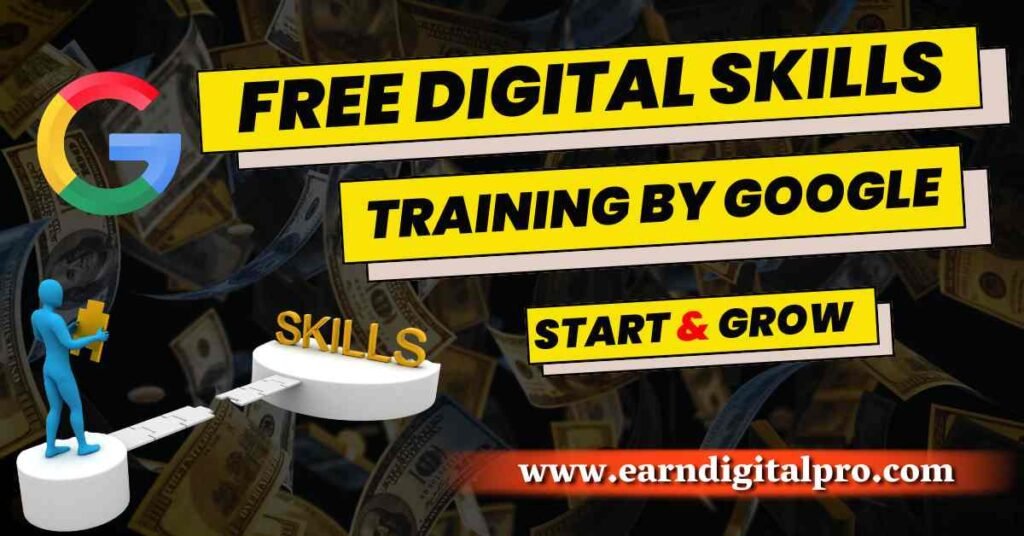In today’s fast-paced, tech-driven world, digital skills are no longer a luxury—they’re a necessity. Whether you’re looking to boost your career, start a side hustle, or simply navigate the digital landscape with confidence, beginner digital skills courses are the perfect starting point. But with so many options out there, where do you begin?
This guide will walk you through everything you need to know about beginner digital skills courses. From understanding what they are to choosing the right one for your goals, we’ll cover it all. Plus, we’ll share real-life examples, expert insights, and actionable tips to help you get started. Let’s dive in.

What Are Beginner Digital Skills Courses?
Beginner digital skills courses are designed to teach foundational skills that help you navigate and thrive in the digital world. These courses cover a wide range of topics, from basic computer literacy to more specialized skills like coding, digital marketing, and graphic design.
Think of them as your digital toolkit. Whether you’re a complete novice or someone looking to brush up on the basics, these courses provide the knowledge and confidence you need to succeed.
In today’s tech-driven world, digital skills are no longer optional they’re essential. But where do beginners start? That’s where beginner digital skills courses come in. These courses provide foundational knowledge, helping individuals navigate the digital landscape with confidence.
Imagine trying to apply for a job without knowing how to send an email or use an online application portal. A 2023 LinkedIn study found that 87% of jobs now require some level of digital proficiency. Whether you’re a student, job seeker, or entrepreneur, mastering these skills opens doors to new opportunities.
Why Are Digital Skills Important?
In today’s fast-paced world, digital skills are as crucial as reading and writing. From job applications to online banking, nearly every aspect of life requires some level of digital literacy. Employers now prioritize candidates with strong digital skills. According to a 2023 World Economic Forum report, 90% of jobs require basic computer proficiency. Whether it’s using spreadsheets, managing emails, or leveraging social media for marketing, digital fluency makes you a more valuable employee.
Think about how often you use your smartphone or computer—ordering food, paying bills, or connecting with loved ones. Without digital skills, even simple tasks become challenging. Knowing how to navigate apps, protect personal data, and troubleshoot issues saves time and frustration. Technology is constantly evolving. Learning digital skills ensures you stay relevant and adaptable, whether you’re a student, a professional, or a retiree exploring new opportunities.
1. Career Advancement
According to a report by the World Economic Forum, 50% of all employees will need reskilling by 2025 as technology adoption increases. Whether you’re in healthcare, education, or retail, digital skills are becoming essential for career growth.
Climbing the career ladder doesn’t have to take decades. With the right strategy, you can accelerate your professional growth and land better opportunities faster. Here’s how. Companies value employees who adapt. According to LinkedIn’s 2024 Workplace Learning Report, soft skills like communication and problem-solving are just as critical as technical expertise. Identify gaps in your skillset and take online courses or attend workshops to stay competitive.
Success isn’t just about what you know it’s who you know. Join industry events, engage on LinkedIn, and seek mentors. Many top professionals credit their career breakthroughs to strategic networking. Going beyond your job description sets you apart. Volunteer for challenging projects, propose innovative ideas, and showcase leadership skills qualities that managers notice when considering promotions. Recruiters often search for candidates on LinkedIn. Optimize your profile, share insights, and engage with industry trends to position yourself as a thought leader.
2. Everyday Life
Life isn’t just about big milestones—it’s about finding joy in the little moments. Here’s how you can transform your daily routine into something meaningful and fulfilling. Morning routines set the tone for the day. Studies show that practicing gratitude and mindfulness can boost happiness and productivity. Even five minutes of journaling or deep breathing can make a difference.
Strong relationships improve overall well-being. Whether it’s a quick call to a loved one or a coffee chat with a colleague, small interactions can create a sense of belonging and positivity. Success isn’t just about major achievements. Completing a workout, finishing a book, or cooking a healthy meal all contribute to personal growth and satisfaction.
Top Beginner Digital Skills Courses to Consider
In today’s digital-first world, having essential tech skills isn’t just a bonus it’s a necessity. Whether you’re looking to switch careers, start a side hustle, or simply boost your online confidence, the right course can make all the difference. Here are some top beginner-friendly digital skills courses to kickstart your journey.
Offered by Google, this free, beginner-friendly course covers SEO, social media, and analytics. With 26 modules, it’s ideal for entrepreneurs and job seekers alike. Taught by IBM, this course simplifies data analysis for beginners. It’s perfect if you want to understand data-driven decision-making a must-have skill in today’s job market.
This hands-on course introduces HTML, CSS, and JavaScript, helping beginners create their first website. Real-world projects ensure practical learning. Mastering Excel is crucial for productivity. This course teaches formulas, data visualization, and automation—skills that employers value.
If you love writing and storytelling, this free course teaches content strategy, SEO, and audience engagement—ideal for aspiring bloggers or marketers. Investing in digital skills opens doors to remote jobs, freelancing, and better career opportunities.
1. Basic Computer Literacy
If you’re new to computers, this is where to start. These courses cover essential skills like using a keyboard and mouse, navigating operating systems, and understanding file management. In today’s tech-driven world, basic computer literacy is as essential as reading and writing. Whether you’re applying for jobs, managing personal finances, or staying connected with loved ones, knowing how to navigate a computer can make life easier and more efficient.
Computer literacy means understanding how to use a computer for essential tasks like typing documents, browsing the internet, sending emails, and managing files. It’s the foundation for digital skills that help in everyday life and career growth. Employers expect basic computer skills, with 77% of jobs requiring digital proficiency. From using Microsoft Office to understanding cybersecurity basics, these skills increase job opportunities and workplace efficiency.
Start with beginner-friendly courses like Google’s Applied Digital Skills or LinkedIn Learning’s Computer Basics. Hands-on practice with simple tasks like creating a resume in Word builds confidence. Mastering basic computer literacy unlocks new possibilities, from better job prospects to improved digital independence.
2. Introduction to Coding
Coding is the backbone of the digital world. Beginner coding courses teach you the basics of programming languages like HTML, CSS, and Python. Coding is no longer just for tech experts—it’s a valuable skill for everyone. Whether you want to build websites, create apps, or automate tasks, learning to code can open new doors.
Coding is the process of writing instructions for computers to execute. Languages like Python, JavaScript, and HTML power everything from social media platforms to smart home devices. With tech jobs growing rapidly, coding skills can increase job security and income potential. Even if you’re not in tech, automation and data analysis skills can give you a competitive edge.
Start with beginner-friendly platforms like Codecademy or freeCodeCamp. Hands-on practice with small projects, like building a personal website, boosts confidence.
How to Choose the Right Course for You
Start with your goals. Do you want to upskill for a promotion, switch careers, or explore a passion? For example, if you’re eyeing a tech job, Harvard and Coursera offer top-rated coding courses. If you prefer creative fields, Skillshare provides hands-on design classes. Next, check course credibility. Look for accredited programs, expert instructors, and real student reviews. A 2023 LinkedIn report found that certified courses boost employability by 72%.
Also, consider your learning style. If you thrive with structure, university programs work best. For flexible learning, platforms like Udemy or edX let you learn at your pace. Investing in the right course can change your future. Research, compare, and choose wisely your dream career starts here.
1. Identify Your Goals
Start by asking yourself: What excites you? What impact do you want to make? For example, if you love technology, your goal might be to learn coding and land a tech job. If fitness is your passion, you may aim to complete a marathon. Experts recommend using the SMART framework Specific, Measurable, Achievable, Relevant, and Time-bound. A Harvard study found that people who write down their goals are 42% more likely to achieve them.
Break big goals into smaller milestones. If you want to start a business, begin with market research and networking. Celebrating small wins keeps you motivated. Your goals shape your future. Reflect, plan, and take action. The right path is the one that aligns with your passion and purpose.
2. Consider Your Learning Style
It might be because you’re not learning in a way that suits you best. Everyone has a unique learning style—visual, auditory, reading/writing, or kinesthetic. Understanding yours can boost retention and make learning enjoyable.
For instance, if you’re a visual learner, watching diagrams or videos helps concepts stick. Auditory learners thrive with podcasts and discussions, while kinesthetic learners grasp ideas better through hands-on activities. Research from the American Psychological Association suggests tailoring study methods improves comprehension and recall.
Take a moment to assess your preferences. Experiment with different techniques mind maps, recorded notes, or interactive exercises. When you align learning with your style, knowledge becomes second nature.Embracing your learning style isn’t just smart; it’s a game-changer for personal and professional growth. Try it today and unlock your true potential!
Also Read Best Digital Skills for Career Growth in 2025
Real-Life Success Stories
Success isn’t just a dream—it’s a journey. Some of the most inspiring success stories come from people who started with nothing but determination. Take Howard Schultz, the visionary behind Starbucks. Raised in a low-income household, he turned a small coffee chain into a global empire by prioritizing quality and customer experience.
Another remarkable story is Oprah Winfrey. Overcoming poverty and personal struggles, she became a media mogul, inspiring millions with her authenticity and resilience. Research by Harvard Business Review confirms that persistence and adaptability are key drivers of success.
From Elon Musk’s relentless innovation to J.K. Rowling’s journey from rejection to bestselling author, these real-life examples prove that success is possible for anyone willing to push forward.
1. Sarah’s Career Change
Making a career change can feel overwhelming, but Sarah’s story proves it’s never too late to follow your passion. After spending a decade in corporate finance, she realized her true calling was in digital marketing.
Sarah didn’t jump blindly—she upskilled through online courses, built a personal brand, and networked with industry leaders. According to a LinkedIn survey, 62% of professionals say networking played a key role in their career transitions. By leveraging platforms like LinkedIn and Upwork, Sarah landed freelance gigs that eventually turned into a full-time role.
Her journey highlights the power of adaptability and lifelong learning. If you’re considering a career pivot, start small—take courses, seek mentors, and gain real-world experience. As career expert Dr. John Sullivan advises, “Skills are the new currency in today’s job market.
2. Mike’s Side Hustle
Mike always dreamed of financial freedom, but his 9-to-5 job wasn’t cutting it. Instead of waiting for a promotion, he started a side hustle—selling handmade leather wallets on Etsy. Within six months, his hobby turned into a thriving business.
He didn’t just rely on luck. Mike studied e-commerce trends, optimized his product listings for SEO, and used social media marketing. According to a 2023 Shopify report, businesses that leverage SEO and social media see 30% higher sales. By targeting niche audiences and offering personalized designs, Mike built a loyal customer base.
His story proves that with the right strategy, a side hustle can become a full-time income. Whether you’re into freelancing, e-commerce, or digital products, start small and stay consistent. As entrepreneur Gary Vaynerchuk says, Passion plus execution beats talent every time.
3. Linda’s Confidence Boost
Linda always struggled with self-doubt, avoiding opportunities because she feared failure. But everything changed when she decided to take control of her confidence.
Instead of waiting to “feel ready,” she started small—practicing daily affirmations, improving her posture, and setting achievable goals. According to a study by the University of Melbourne, confident people are 22% more likely to succeed in their careers. Linda also joined a public speaking club, pushing herself out of her comfort zone.
Within months, she noticed a shift. She spoke up in meetings, pursued leadership roles, and even launched a personal blog to share her journey. Psychologists agree—confidence is a skill you can build with practice. As leadership expert Amy Cuddy says, Fake it till you become it.
Expert Insights
Success isn’t just about hard work—it’s about working smart. That’s why learning from experts can fast-track your growth, whether in business, health, or personal development.
Take Warren Buffett’s advice on decision-making: “The best investment you can make is in yourself.” Studies show that reading just 30 minutes a day can significantly boost knowledge and critical thinking. Similarly, psychologist Carol Dweck’s research on a growth mindset reveals that those who embrace challenges outperform those who fear failure.
Real-world examples prove this works. Sarah Blakely, founder of Spanx, credits her success to reframing failures as learning opportunities. Meanwhile, productivity guru James Clear emphasizes small, consistent habits over quick fixes.
The takeaway? Surround yourself with expert insights, apply what resonates, and stay adaptable. Whether it’s leadership, finance, or well-being, the right knowledge can transform your life. Ready to level up? Start implementing these expert-backed strategies today!
Tips for Success in Beginner Digital Skills Courses
Starting a digital skills course can feel overwhelming, but with the right approach, you can master new tech skills faster than you think.
First, set clear goals. Whether you’re learning coding, graphic design, or digital marketing, knowing why you’re learning keeps you motivated. Research from Harvard Business Review shows that goal-setting improves performance by 30%. Next, practice consistently. Instead of cramming, dedicate 30-60 minutes daily to hands-on projects. According to the Forgetting Curve, we retain 75% more information when we apply what we learn immediately.
Also, don’t hesitate to ask for help. Join online forums, take part in discussions, and connect with mentors. Platforms like Coursera and Udemy often have active student communities.
The Future of Digital Skills
As technology continues to evolve, so will the demand for digital skills. According to a report by LinkedIn, the most in-demand skills for 2023 include cloud computing, artificial intelligence, and data analysis.
The digital landscape is evolving rapidly, and staying ahead means mastering future-ready skills. According to the World Economic Forum, over 50% of employees will need reskilling by 2025 due to automation and AI. So, what’s in demand? Tech giants emphasize skills like data analysis, cybersecurity, artificial intelligence, and digital marketing. Cloud computing and UX/UI design are also booming, as businesses shift online.
Take Sarah, a former retail worker who transitioned into digital marketing through online courses. Within a year, she landed a remote job, proving that digital skills open doors. Experts like futurist Bernard Marr stress that continuous learning is the key to career success in a tech-driven world. The takeaway? Whether you’re a student, freelancer, or professional, investing in digital skills is no longer optional—it’s essential. Start today, stay adaptable, and future-proof your career!
Also Read
Final Thoughts
Beginner digital skills courses are more than just a learning opportunity—they’re a gateway to new possibilities. Whether you’re looking to advance your career, start a business, or simply stay connected, these courses can help you achieve your goals.

Ashraf Kamal is an experienced digital marketer and content creator who shares authentic methods of blogging, SEO, freelancing, and online earning. Earn Digital Pro aims to provide readers with valuable and practical knowledge to help them succeed in their online journey.

